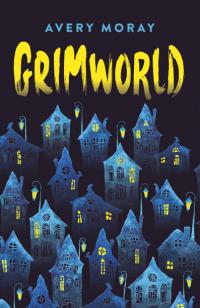

Shakespeare - *cue booming, ominous gong sound* - can be a scary proposition.
There he is, wise and wondrous, staring down from his plinth or up at you from the inside cover of your brand-new copy of Hamlet. There, on the next pages, is his life, what little we know of it, and the obligatory drawing of a theatre from a woodcut by Johannes de Witt, before the text itself unravels, weirdly familiar in parts but largely alien and written as if in another language. There are plenty of thees, thous and anons to wade through until you get to your first Exeunt.
The Five Acts go on, page after page, and although sometimes a diamond may gleam up at you from the black words and sparkle in your imagination, the sheer volume and denseness of the text could grind you down. This is heavy stuff but if you're lucky you´re reading it with a good guide in hand, a good teacher on hand or you're watching a great production. If you're unlucky, it's a hot day, the guide is obtuse or the teacher's bored, the letters blur and it becomes a chore.
With Shakespeare you're not given much room for manoeuvre as far as personal opinions go: he's the greatest playwright – no! The Greatest Writer Who Ever Lived! – and you must like him, even if you don't understand his work. His speeches are declaimed in ringing tones by actors distinguished and powerful. His plays lend themselves to constant interpretation, his words can be analysed and even this analysis is debated, and he sells loads and loads of books and tickets. And tea-towels. And coasters and posters and trinkets and whatever else they can come up with.
All this posturing, noise, snobbery and grandiosity puts a lot of people off trying. Many people give up before they even see the plays for the bluster and this is a great shame, I think. For the Will who once kicked a pebble under a passing cart on his way to the Schoolroom on Church Street in Stratford-Upon-Avon was much more a man of people than his portrayal today might suggest. That he was actually human at all might come as a surprise to some, so far-off and exalted he seems at times.
At heart he was a country child, growing up far from London in a market town, close to nature but on the map and in the mix. He was fairly well-off and privileged enough to go to a grammar school though university was never on the menu. Acting always was. Then, like now, it was a profession full of risks. You might never make it. Did you have any connections? Unless you got lucky, you had no chance: but Will went for it anyway. He was bitten by the bug.

London in those days was a two-day horse ride away but it was the place to go if you wanted to be in the thick of things, then as now. Will went there an unknown, a bright, country lad with an education and a nice turn of phrase. Then as now he would have had to knock on people's doors and beg. Then as now there was a ring of well-read, literate, self-appointed taste-makers blocking his path to the powers that be. But one way or another, he made it. He got himself into a troupe and started acting and writing and those same feet which had clumped down Church Street now trod the boards of the London stage.
Or did he? Because the snobbery starts even here. There are many people who believe, at heart, that Will's story is just too unbelievable. No-one from a way-out market town in the Midlands could come up with the stuff Will was supposed to be writing. With the education he was supposed to have received, how could he know all this legal jargon and show such a grounding in foreign names and places and customs he displayed in his plays? How could he portray rich and educated people, royalty no less, when he was a nobody?
Talent and hard work had nothing to do with it, of course. Nor reading. Nor imagination.
If there's one thing we know about Will Shakespeare from his works it´s that he loved reading. He wore his reading on his ruffled sleeve. His writing is what he read, filtered through the prism of a brilliant imagination. And he knew people. He was an observer. He watched what made people laugh. Saw life from all angles, all sides. Studied people and the effect of words on people.
I can easily imagine that young lad in Stratford writing love letters, poems and notes for his mates to give girls. Or everyone laughing at a skit he'd written about the teachers at school. Or managing to get a play put on somewhere, in a pub - say The Windmill - or even outside, on Sheep Street or Bridge Street, about the people in town which even those he was poking fun at liked. “You should try this for serious, Will,” someone might have told him. “You´re better than half of them so-called actors on the London stage now.”
Even when he'd got himself published and was working he still had to put up with barbs and jibes -that he was an upstart, who did he think he was? - but he was ‘in’ by then and carried on regardless. The audience liked what he did. He held a mirror up to the world and showed people how they were, complicated and knotted and lovable and evil, mostly all at the same time. He showed the contradictions of everyday life, the grey areas where politicians and bigots dare not enter, and he did it with humour, wit and drama. The music of the words was pleasant enough, too.
So what would he make of his legacy these days? The weird, snobbish, received-pronunciation way of declaiming his speeches which had nothing to do with the language of Shakespeare's day or the way people pronounced English then?
What would he make of the balcony scene in Romeo and Juliet, which he never wrote - ‘Twas a window, only? - or of the debate over whether or not he even wrote the plays? What would he make of his austere image and the gloomy (remember that gong?) feeling which the nation´s schoolchildren experience when they're told, “This year, we´re going to study some Shakespeare…”

My guess is he would be tickled by it all. And he´d definitely buy a tea-towel with his own image on though he'd probably use it to hide his face because in this day and age he wouldn't be allowed to forget his mistakes. Twitter and Facebook would be full of it:
There are clocks in Julius Caesar when they didn't exist!
Bohemia doesn't have a coastline!
Billiards weren't being played in Cleopatra´s day! and so on.
The funny thing is that the snobs who idolise and live off Shakespeare would probably reject him now just as they did in his time. Some upstart from Hull or Grimsby wanting to write about places he'd never been and people he could never know. But my guess is that he would succeed now as he did then, probably writing for Amazon or Netflix. He'd be successful with the crowd and keep a house back in the provinces where he would retire a happy, contended man.
Years after his death, cyborgs and human children might doze on globally-overwarmed days watching reruns of his series and algorithms would say he couldn't possibly have written what he did because he wasn't from London and hadn't been to university.
Get your Copy of The Invisible Hand for only £1.19!
The Invisible Hand, Book I in the Shakespeare Moon series is on SALE at only £1.19 until 31st March 2019. Get your copy today.
The Invisible Hand is about a boy, Sam, who has just started life at a boarding school and finds himself able to travel back in time to medieval Scotland. There he meets a girl, Leana, who can travel to the future, and the two of them become wrapped up in events in /Macbeth/, the Shakespeare play, and in the daily life of the school. The book is the first part of a series called Shakespeare´s Moon. Each book is set in the same boarding school but focuses on a different Shakespeare play.
James was born in Heswall, on the Wirral, England, on a rainy Thursday in 1973. He´s lived in Singapore, Oman, Scotland, Thailand, Libya, Syria, Ireland, France and Germany during his forty-odd years on the planet and has worked as a journalist, waiter, childminder and dishwasher. He lives in Madrid, Spain, with his wife and two children and teaches English.
Categories:
0 comments on this article








